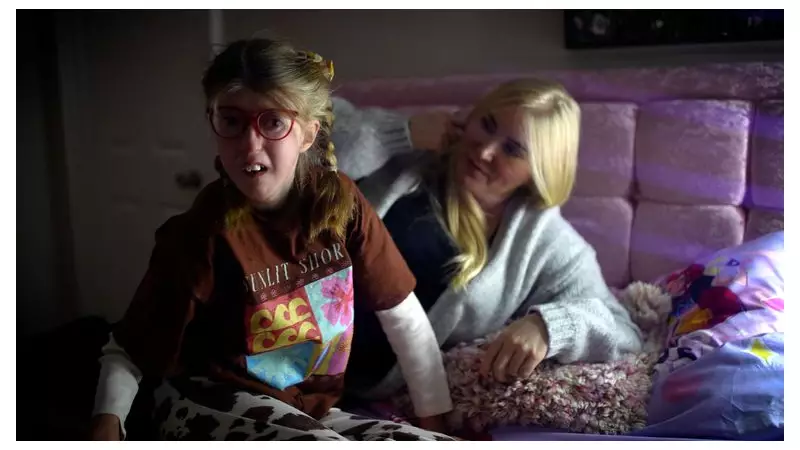
Every night, as most families sleep peacefully, one mother begins her terrifying vigil - a relentless battle to keep her daughter alive while she sleeps. This is the heartbreaking reality for families across Britain who are being failed by the healthcare system meant to protect them.
The Nightly Fight for Survival
Imagine the terror of knowing your child could stop breathing at any moment. For this dedicated mother, that fear is her constant companion. Her daughter, who suffers from Rett syndrome, faces the constant risk of choking on her own saliva during sleep.
"I don't sleep - I can't," the mother explains, her voice heavy with exhaustion. "Every sound, every movement, I'm immediately alert, checking she's still breathing."
The NHS Refusal That's Putting Lives at Risk
Despite clear medical need, the NHS has repeatedly denied funding for a suction machine that would remove excess saliva and prevent life-threatening choking incidents. The reason? They claim the family can "manage without" the essential equipment.
This decision forces the mother to perform manual suction throughout the night, a physically and emotionally draining process that offers no guarantee of safety.
The Human Cost of Budget Cuts
The family's story highlights a growing crisis in disability care across the UK. As health services face increasing pressure, vulnerable patients and their families are being left to cope with inadequate support.
The emotional toll is immeasurable:
- Constant sleep deprivation affecting the entire family
- Permanent anxiety about potential medical emergencies
- Financial strain from seeking private alternatives
- The heartbreaking reality of fighting for basic medical care
A System Failing Its Most Vulnerable
Medical professionals familiar with the case have expressed concern about the NHS's position. The required equipment represents a relatively small cost compared to the potential consequences of not providing it.
"This isn't just about one family," explains a healthcare advocate. "It's about a system that's becoming increasingly bureaucratic and losing sight of its fundamental purpose - protecting human life."
As the mother continues her nightly watch, she represents thousands of families across Britain who find themselves fighting not just illness, but the very systems designed to help them.





